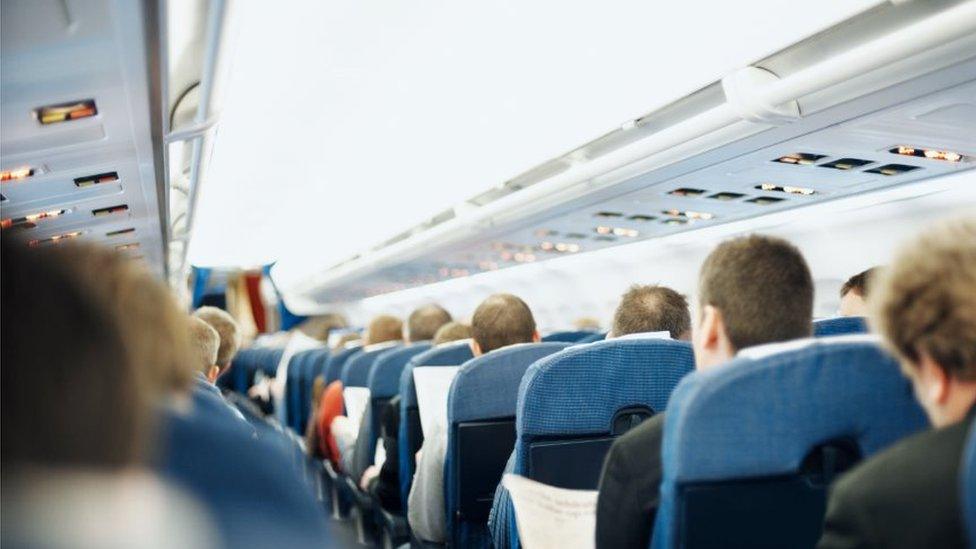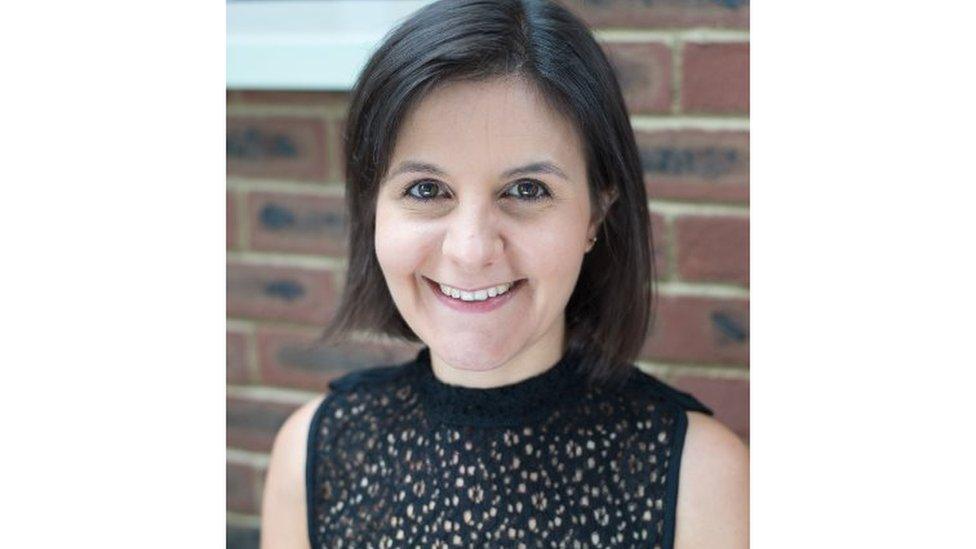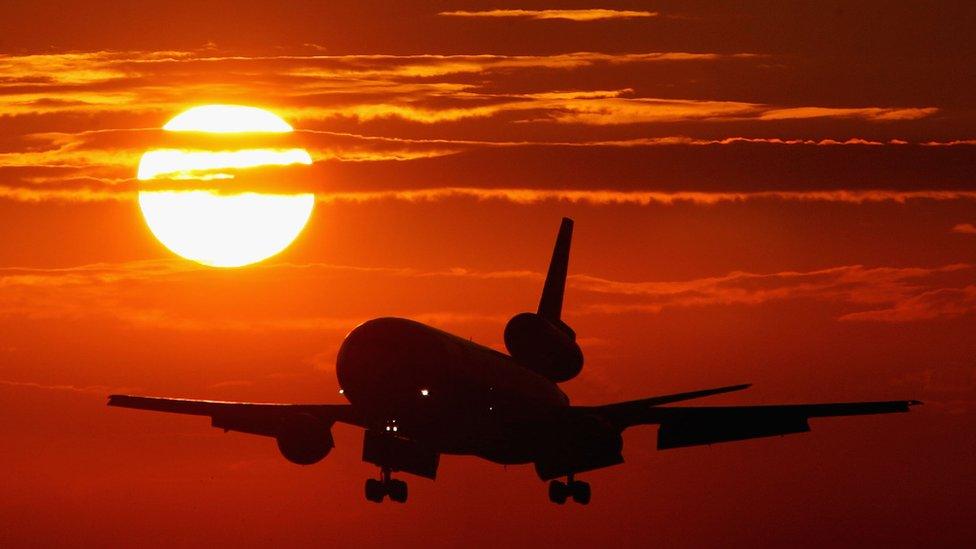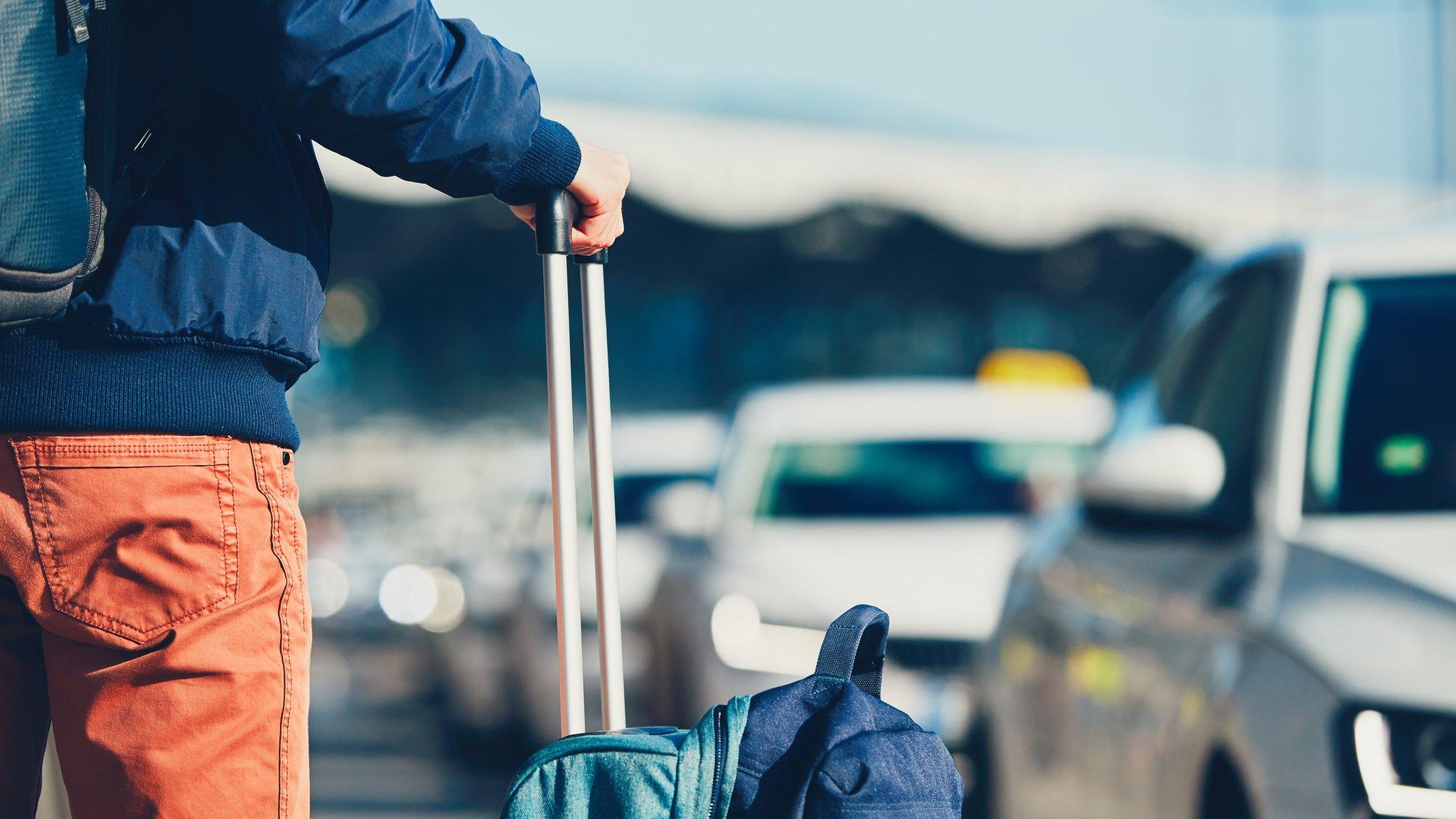Airlines probed over 'confusing' seating policy
- Published

A review is being launched into airlines' seating policies, the Civil Aviation Authority says.
It will examine whether companies are deliberately splitting up groups of passengers so they pay to sit together. Airlines allocate seating via computer algorithms.
The BBC has been told of many incidents of family and friends being split.
A spokeswoman for Ryanair said: "Our policy is very clear for our customers."
The CAA said it wanted to make sure seat allocation practices were "fair and transparent".
CAA research of more than 4,000 passengers who had travelled as part of a group on 10 airlines in the last year found that just over half of respondents were told they would have to pay more to sit together before they booked.
However, almost half believed that their airline would automatically allocate them seats together.
Of the group of respondents that paid extra to sit together, six in 10 said they did so because of the risk that their airline might split up their group.

Children separated

Natalie Williams was separated from her two young children
At least twice a year, Natalie Williams takes her children to visit her parents, who live in Portugal.
Returning to the UK after an Easter holiday in 2017, she checked in online and found the family of four had been completely separated.
"That meant a two-year-old child and five-year-old travelling on their own.
"We were not even anywhere near them. I didn't think that was acceptable," she says.
She says no one was available to help at the main desk or at the gate, so she was left to ask other passengers to move so that they could travel in pairs and her children would not be alone.
"Luckily both travellers were happy to help and get separated from their own group."
Ms Williams has complained to TAP Air Portugal but has not received a response.
'Rip-off exercise'
Gill Willis paid extra to sit next to her husband on a Ryanair flight back from Fuerteventura in 2017.
"When we got on the plane the lady next to us was behind her husband and the seat I had originally been allocated remained empty next to him.
"So there was no need to have paid extra as they could have just rearranged so the two couples sat together," she said.
She added: "It is just a money making rip-off exercise. I really hope something is done as it is completely unnecessary."

Andrew Haines, chief executive of the CAA, said airline seating practices were "clearly causing some confusion" and its research showed some passengers were paying to sit together when they might not need to.
"We will be looking into how airlines decide where to seat passengers that have booked as part of a group and whether any airlines are pro-actively splitting up groups of passengers when, in fact, they could be sat together," he said.
"We will not hesitate to take any necessary enforcement action should it be required at the end of the review," he added.

You might also like:

A spokeswoman for Ryanair said the airline was happy to co-operate.
"Our policy is very clear for our customers and seats can be purchased from just €2 and kids travelling in families get free seats," she said.
In a statement, EasyJet said: "Unlike some airlines, if passengers choose not to pay to select their seats, EasyJet's seating system is programmed to try and seat families together when they check-in online by using an algorithm."
- Published2 January 2018

- Published21 October 2017
